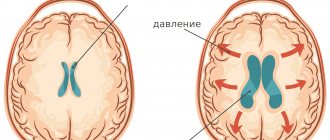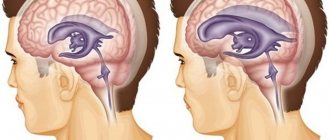The topic of a child’s adaptation to kindergarten does not lose its relevance. Many parents are faced with difficulties in getting their son or daughter accustomed to new conditions and do not know how to properly resolve them.
In this article, we will tell moms and dads what a child’s adaptation to a preschool institution involves, what degrees and stages of adaptation exist, and how to help the child adapt to the children’s group as quickly as possible.
Make sure that your child's adaptation is going smoothly or check if he has any problems so that you can help in time. Use the “Where are my children” application in combination with a children's smart watch - instantly contact your child, listen to the sound around you and always know where he is.
What is adaptation?
Imagine the world of a small child. Beloved mom and dad, familiar toys, a warm bed, familiar surroundings and daily routine.
And suddenly one day everything changes. His mother takes him to an unfamiliar place and leaves him with a strange aunt. Everything in this place is foreign - the toys, the crib, and the food are not the same as at home. And most importantly, there are a lot of unfamiliar children there, who often cry, and some may even offend. At this point you need to listen to the teacher and do everything she says. This place is called kindergarten...
⠀
Finding himself in an unfamiliar environment, the child is in a state of extreme stress. In order for him to get used to it, he must go through a period of adaptation. This term means the ability to adapt to environmental conditions, to adapt to them.
During adaptation, the activity of almost all systems of the child’s body undergoes a restructuring.
Adaptation of a child to the conditions of a kindergarten is usually accompanied by the following phenomena:
- regression of skills occurs (the child temporarily “forgets” how to go to the potty, hold a spoon, etc.);
- sleep and appetite worsen;
- the child looks depressed, lethargic, lethargic;
- frequent whims, hysterics for any reason.
There are 3 categories of children. For some, adaptation problems begin immediately, for others - after 2-3 weeks, for others there are no visible changes. This is due to many factors and depends on the adaptive capabilities of the child’s body.
You should not be afraid of changes in the behavior of your son or daughter. In this way, the child’s body copes with the stress and adapts to new conditions.
Degrees of adaptation
Designed by Freepik
There are mild, moderate and severe degrees of adaptation of a child to kindergarten.
Easy degree
A child with a mild degree adapts on average in 2-4 weeks. An easy degree of adaptation will be characterized by the following indicators:
- Sleep : the child sleeps peacefully during daytime and nighttime sleep, may sometimes wake up, but easily falls asleep again.
- Appetite : good, may be selective in dishes.
- Emotional state : even, calm.
- Behavior : without tears or hysterics, he lets go of his mother and remains in the group. Can keep himself busy playing.
- Communication with adults and peers: makes contact with teachers and children, can ask the teacher for help, gets involved in games with peers.
Even with a mild degree of adaptation, the child may initially experience sleep and appetite disturbances.
Average degree
The average degree of adaptation lasts more than a month. The child is often sick, and getting used to kindergarten is difficult due to long breaks.
Adaptation of moderate severity can be judged by the following criteria:
- Sleep: the child sometimes does not sleep during quiet hours; if he falls asleep, his sleep is restless and intermittent.
- Appetite: may refuse some dishes, eats little.
- Emotional state: often cries, is sad, mood changes for minor reasons. Can keep himself busy with the game, but for a short time.
- Behavior: has difficulty parting with his mother, and after she leaves he stands alone at the window for a long time.
- Communication with adults and peers: shows no interest in communication, constantly asks the teacher if mom will come soon.
A child with a severe degree of adaptation may take more than 2 months to get used to kindergarten, or may not get used to it at all. Then doctors recommend refusing to attend preschool.
Severe degree
Severe addiction is typical for children with disabilities.
The fact that it is not easy for a child to adapt to kindergarten can be judged by the following indicators:
- Sleep : the child does not sleep during quiet hours. At night, sleep is restless, intermittent, and there are night terrors.
- Appetite : decreased, may refuse to eat.
- Emotional state: depressed, the child seems to withdraw into himself or, on the contrary, is aggressive.
- Behavior: after mom leaves, she cries, screams, does not want to go into the group, and can sit in the locker room for a long time.
- Communication with adults and peers: does not make contact or shows aggression towards children and adults.
The completion of a child’s adaptation period can be judged by the stabilization of all indicators.
Make sure that your child's adaptation is going smoothly or check if he has any problems so that you can help in time. Use the “Where are my children” application in combination with a children's smart watch - instantly contact your child, listen to the sound around you and always know where he is.
Stages of addiction
The process of a child getting used to kindergarten takes place in several stages.
Stage 1 – period of maladjustment. No matter how the parents prepare the child for the nursery, at first he will still be in a state of stress and constant tension. It is difficult for a child to part with his parents; he often cries and is capricious. Colds may begin.
Stage 2 – adaptation period. The protective mechanisms of the psyche are triggered, the child begins to communicate with the teacher and other children, participates in games, but still misses his parents and often asks about them. At this stage, the baby is just beginning to get used to the new rules, so he may violate discipline and refuse to comply with the teacher’s demands.
Stage 3 – compensation period. The adaptation process is completed, the child gets used to the children's team, teachers and the new daily routine, and calmly lets his parents go for the whole day. The emotional background stabilizes, physiological indicators return to normal.
How long each stage will last depends on the individual characteristics of the baby.
Games with a child during the adaptation period
Play is the main means of relaxation for a preschooler. Through the game, trusting relationships are built.
What are the advantages of playing for a child in comparison with other means of relaxation:
- The child gets the opportunity to feel his strength and abilities.
- He doesn't have to feel helpless.
- He learns about the world around him, learns self-expression, and rises in his own eyes.
- Learns to communicate.
- Learns to manage your own feelings.
- Experiences a wide range of emotions.
- Various games with sand and water provide an excellent relaxing effect.
- Negative emotions are inhibited by monotonous hand movements, so pay attention to games such as collecting large construction parts, stringing balls on a cord, and the like.
Preschool educational institutions often use such effective games as “My Favorite Kindergarten,” which demonstrate all the advantages of the institution. Usually in the center of the room there is a small stand with a photo of the institution. Petals with corresponding notes are glued next to him. These inscriptions (or drawings) should be made by the child, listing all the good things that exist in the kindergarten and school.
The game “Sunshine” is also often used, which allows you to receive “psychological strokes” from others, which are urgently needed for a child to feel his importance and value in the eyes of others. The game is played in a friendly atmosphere and in a good mood. Ideally, the participants in the game will be the baby’s parents, whose encouragement and appreciation is especially important. Through games and fairy tales, you can show your child all the advantages of a preschool educational institution, and this opportunity must be used at every convenient opportunity.
The influence of various factors on adaptation
How long it will take a child to get used to a child care facility is influenced by many factors. Let's look at the main ones.
Child's age
The situation is such that many mothers strive to send their children to kindergarten as soon as possible and go back to work after maternity leave. Therefore, recently the need for nurseries has increased, starting to accept children from one and a half years old, which not every preschool institution has.
Most experts believe that the younger the child, the more difficult his adaptation period is, since the immune system has not yet strengthened and the need for parental care and attention has increased.
Therefore, the optimal age for starting kindergarten life is considered to be 2.5 - 3 years. And pediatricians insist that parents send their children to kindergarten no earlier than three years of age.
Read detailed material with expert opinions on this topic – Is it time to go to kindergarten? When is the best time to give up a child and what does a parent need to know?
Health status
As we have already said, children with limited health capabilities or private colds and chronic diseases have a hard time getting used to kindergarten.
Therefore, parents should postpone kindergarten and wait until the child’s body can adapt to preschool without serious consequences.
Level of development of skills and abilities
By the beginning of kindergarten life, children should have all the necessary skills and abilities: go to the potty, hold a spoon, drink from a cup, partially dress and undress themselves, and also be able to ask an adult for help.
If parents are used to doing everything for the child, it will be difficult for him to get used to independence. Accordingly, his adaptation period may be prolonged.
Level of socialization
In kindergarten, the child will have contact with a large number of children and adults. It’s good if he already has such communication experience. Otherwise, it will be very difficult for a child who is accustomed to seeing only his mother and father next to him to get used to the children's team and teachers.
How to get your child to talk if you suspect that he is being bullied or beaten in kindergarten?
Also, the duration of adaptation depends on the personality of the teacher to whom the child is assigned, the number of children in the group, the characteristics of the child’s nervous system and the atmosphere in the family.
Preparing young children to attend preschool educational institutions
What points should be taken into account when preparing for preschool education.
Age
According to the observations of psychologists, each age has its own adaptation period. It is noted that in the nursery group it is the shortest - approximately one to one and a half weeks. At the age of three, the period may increase to half a month or a little longer. For senior preschool age, the adaptation period can be a month. These are general estimates and some children may not be eligible.
First days at preschool educational institution
Remember! The first days of a child’s stay in a preschool educational institution are the most difficult. An unfamiliar company, the absence of a mother, changes in the usual way of life are factors that exert emotional pressure on the child’s psyche.
Don't want this to happen? Bring home conditions closer to those in kindergartens. The baby must be able to ask to go to the potty, put on some items of clothing, wash himself, use a spoon, and express his desires in words or simple gestures.
Health status
The aspect that influences the development and behavior of the baby is the state of health. A sick and weakened child is often either irritable and capricious, or lethargic. He gets tired quickly and may lag behind in development. In the first days of staying in a preschool educational institution, this is especially obvious.
It is more difficult for weakened children to adapt to unusual conditions. They begin to get sick more often and find it difficult to cope with separation from loved ones. It happens that this is expressed by depression or weight loss, rather than crying or obvious negative appearances. This state should be no less troubling than pronounced negative emotions.
Particular attention should be paid to children with a weak type of nervous system. Any change is not easy for them. At the slightest problem, their emotional state is subject to stress, despite the fact that they may not express their feelings too clearly. Everything new comes to them with great difficulty. They are not sure of anything and are slower than most to acquire the necessary skills. Such children need adaptation, and they should be taught gradually. Encourage and encourage them to learn new things.
Recommendations for parents
Teachers give general recommendations:
- Set your child up for positive changes. Explain to him how great it will be for him in the new place, and how many would like to go there. Celebrate how lucky you are that your child was accepted into the preschool.
- When bringing your child to an institution, try to part with him quickly and easily. Long goodbyes and a worried face will make him anxious.
- If the baby experiences separation from his mother very difficult, then it is advisable that another family member take the baby for the first time. He should also be taken home early and not be separated for too long.
- The family climate should be calm and conflict-free.
- Treat his nervous system with care.
- Reduce your TV viewing and spend more time outdoors.
- Tell teachers about all your child’s characteristics and preferences.
- Treat your child's tantrums with understanding and show that you notice them. Help your child calm down, do not ignore his problem.
- In case of pronounced neurotic reactions, consult a specialist.
How to help a child adapt?
Rules for successful adaptation
- Rule 1. Get to know the kindergarten staff, daily routine and living conditions in advance.
- Rule 2. The child’s adaptation to kindergarten should occur either in the summer or in the winter to reduce the risk of infectious diseases.
- Rule 3. Vaccinations, medical examinations and other visits to doctors must be strictly before the child enters kindergarten.
- Rule 4. In the first days, the child must stay in kindergarten for 1-2 hours. It’s good if this time coincides with a morning walk.
- Rule 5. The child’s time in the group should be increased gradually, taking into account the teacher’s recommendations.
- Rule 6. If a child is sick, mom or dad needs to stay home with him.
- Rule 7. Parents must warn the teacher about all the peculiarities of the child’s behavior, his habits and inclinations.
- Rule 8. When taking your baby home, be sure to ask the teacher how the child behaved during the day.
By following all these rules, parents greatly facilitate the child’s adaptation period in kindergarten.
Psychologist's advice
- Your child needs to be prepared for kindergarten in advance.
Show your child the building, the windows of the group where he will be, and the area for walking. Meet the teachers. It’s not bad if the child learns their names before the first visit. Draw your son or daughter's attention to the fact that parents take all children home in the evening; no one stays overnight.
- The more a child knows about the rules of behavior in a child care facility, the easier the adaptation period will be for him.
The famous Moscow teacher Tatyana Vladimirovna Ostrovskaya invites parents to play a game with their children called “Kindergarten for Animals” before visiting kindergarten. You can use soft toys, dolls, construction sets. The child, together with mom and dad, creates various play situations: “Coming to kindergarten”, “Farewell to mom”, “Breakfast”, “Walk”, “Quiet hour” and others. Thus, the child gets acquainted with what awaits him in kindergarten in a homely atmosphere.
- A child’s ability to successfully adapt largely depends on the psychological attitude of the parents.
The calmer mom and dad are about their child’s visit to preschool, the more confident the child feels in an unfamiliar group.
- Don't forget to develop the necessary self-care skills. Try to give your baby more independence, even in things that he doesn’t yet know how to do.
- Pay attention to developing your child’s communication skills.
He must be able to communicate not only with children, but also with adults. Practice your communication skills when visiting, on the playground, or when visiting relatives.
- The home menu, as well as the regime, should be as close as possible to the garden. Even during weekends and holidays.
- Be friendly and polite to teachers. After all, these are the people to whom you trust the most valuable thing - your child. And not only you, but 20 other moms and dads like you.
- During the adaptation period, the child should not have any additional stress, such as moving, parental divorce, or the birth of a second child. Try to provide a calm family environment.
- Be calmer about illnesses after visiting kindergarten.
During the adaptation period, the child’s sensitivity to all environmental influences increases. Plus, the body cannot always cope with the mental load. “Going into illness” is a protective reaction of the body, both children and adults. The sick child remains in his home, familiar environment. This will continue until he feels safe and comfortable not only at home, but also in kindergarten.
- There are special therapeutic fairy tales that help the baby ease his adaptation to kindergarten. Read them at night and discuss them with your child. It will also be useful to watch cartoons, look at illustrations and photographs of mom and dad from kindergarten.
- Do not forget that after a long break (for example, due to illness), the child’s adaptation process begins anew. This means that problems such as painful separation from mom, tears, hysterics and reluctance to go to kindergarten return.
- Use modern technologies to calm your anxiety and find out how your child has settled into a new place, whether his peers are bullying him, and whether his teachers are behaving correctly. Buy a GPS watch for your child (they are available even for the youngest) and install the “Where are my children” application on your smartphone. With this kit, you can instantly contact your child and listen to what is happening around him in kindergarten while you are not around. When purchasing a children's smartwatch on the official website, the “Where are my children” license comes as a gift!
- If you are concerned about strong changes in your child’s behavior associated with the adaptation period, seek help from a psychologist.
What is not recommended to do during the adaptation period?
- Sit in the locker room while the child is in the group.
- Leaving secretly without saying goodbye to the child.
- Scold and punish for not wanting to stay in kindergarten.
- Leaving the child for the whole day after a long break.
- Speak negatively about teachers and preschool institutions.
- Deceive the child: say that you will pick him up soon if you yourself plan to leave your son or daughter until the evening.
- Bringing a sick child to kindergarten.
- “Bribe” the child with sweets and toys for his stay in the nursery.
Reasons for difficult adaptation to preschool conditions
There are several aspects that provoke childhood stress. The first reason: separation from the mother. Typically, preschoolers are inextricably linked with their mother or father, and cannot imagine themselves without them. The new environment and the absence of a loved one seriously burdens the child, who has lost the opportunity to behave as he used to at home. It is difficult for him to understand and accept a new form of behavior, and this causes discomfort and suffering. Fear gives rise to stress, creating a vicious circle. The child begins to doubt that his mother loves him, since she left him alone in unusual conditions.
Unfavorable adaptation of young children to preschool conditions provokes nervous breakdowns or illnesses. During the severe stage of adaptation, the process usually drags on for a long period. In some cases, the child never adapts to an unusual group. Children with severe adaptation, which can be predicted in the clinic at an early age, are not recommended to be enrolled in kindergarten at the age of 3.
It is believed that boys aged 3-5 years are more vulnerable than girls in terms of adaptation. At this age, they are more attached to their parents, reacting more painfully to separation from them. Consider the 3-year crisis, which overlaps with the adaptation period. The baby begins to feel like an individual for the first time, demonstrating this to others. Some parents ignore these changes in their child, causing even more stress.
At the age of three, a child feels an urgent need for a parent. His weakened psyche should be protected. Sometimes the burden of adaptation in the garden turns out to be prohibitively heavy during this period.
The concept of adaptation, types of adaptation and features of its manifestation
Adaptation, or the adaptation of an organism to its environment, is a fundamental biological problem. When adaptation mechanisms are insufficient, “borderline states” arise. The body can remain in this intermediate zone between health and disease for a long time.
In cases of insufficiency or deteriorating adaptive capabilities, disadaptation occurs - the reverse process of adaptation, in which one will have to refuse to attend kindergarten.
The term “adaptation” was first introduced by the German physiologist Aubert in 1865; later it began to be used in the biological aspect as the “adaptation” of living organisms to the environment. Currently, the concept of “adaptation” is used in connection with certain periods of human personality development and is the subject of research by many scientists in various fields of science.
Let us turn to the research of N.V. Tyurina, who in her article “Adaptation in Modern Psychology” examines adaptation, first of all, from a socio-psychological point of view. In her opinion, the normal functioning of a person’s psychological sphere depends both on the state of the body and on the characteristics of external factors of the social and natural environment. The work of various systems of the body and the degree of social adaptation of the individual in the surrounding world depend in turn on the conditions in which psychological activity takes place. It is very important to define what we mean by adaptation.
The term “adaptation” (Adaptatio - adaptation, adjustment) is the body’s ability to adapt to various environmental conditions. Adaptation ensures normal development, optimal performance and maximum life expectancy of the organism in various environmental conditions. This is a universal phenomenon of all living things, which can be observed in both the plant and animal worlds. Plants adapt to growth in certain soils and different climates; animals live in one habitat or another; fish live in water; birds are in the air, and a person, in addition to adapting his body to climatic conditions and the place of geographical existence, must also be able to adapt to the social sphere. The ability of people to change their behavior depending on changing conditions was defined as social adaptation (G. A. Ball).
A person is able not only to adapt, but also to influence himself and his life. It combines the roles of active and passive. It follows from this that the process of adaptation itself involves not only the influence of the environment on the subject, but also the influence of the subject on the environment.
The psychological mechanism of adaptation, being largely individual for each person, is determined by his past experience and basic constitutional psychophysiological characteristics.
Adaptive mechanisms and personality traits develop in parallel and are mutually dependent. The mechanism of interpersonal adaptation is determined and implemented in an adaptation strategy that forms and directs the adaptive activity of the individual. It is also associated with a complex of some other internal and external factors, including the characteristics of activity and the properties of the adaptogenic environment. To characterize the effective aspect of the adaptation process, the concept of adaptation is often used in the scientific literature. The concept of “adaptability” (“sustainable adaptation”) is synonymous with “norm” and “health”. Stable adaptation is generally considered to be the level of actual adaptation of an individual, the level of his social status and sense of self. Adaptability is both biological and social in nature.
The issue of adaptation indicators is currently controversial. Most researchers strive to identify key performance indicators of the adaptation process. Despite the differences in approaches to designating adaptation criteria, the authors are unanimous in highlighting one of its significant internal indicators. This criterion, depending on the characteristics of the author’s concept, is labeled differently: “emotional well-being” (A. N. Zhmyrikov, A. A. Rean, N. A. Nesterenko); “level of satisfaction with the conditions of activity and communication” (O. F. Gefele); “subjective well-being of the individual” (R. M. Shamionov).
Social and psychological adaptation is in most cases relative. Thus, a personality can be quite successfully adapted in an adaptation niche associated with one activity (game) and much worse in others.
The possibilities (or limits) of adaptation of a particular person are determined by his heredity, age, state of health and degree of training. A person has a special functional system of adaptation mechanisms that carries out all adaptive reactions. This property of adaptation creates the conditions for biological, physiological and psychological adaptation. Age-related immaturity of the system of adaptation mechanisms of children leads to mental stress when the environment changes, and this causes changes in the emotional state and behavioral disorders.
Adaptation is divided into physiological and socio-psychological components (A. S. Rusakov.)
Specialists from the Institute of Age-Related Physiology of the Russian Academy of Education distinguish three stages in the process of physiological adaptation:
- Stage 1 – indicative-adaptive, when in response to the whole complex of new influences associated with the beginning of systematic learning, almost all systems of the body respond with a violent reaction and significant tension. This stage is accompanied by various fluctuations in the somatic state and mental status, which leads to weight loss, frequent respiratory diseases, sleep disturbances, decreased appetite, regression in speech development (lasts on average one month);
- Stage 2 – unstable, incomplete adaptation, when the body is actively looking for optimal options for a stable state that corresponds to new conditions (the body spends everything it has, does not save resources). This period is characterized by adequate behavior of the child, i.e. all changes decrease and are recorded only in individual parameters, against the background of a slower pace of development, especially mental, compared to average age norms (lasts 3-5 months);
- Stage 3 – relatively stable adaptation, when the body finds the most suitable options for responding to the load, requiring less stress on all systems. This period is characterized by an acceleration in the pace of development; as a result, by the end of the school year, children overcome the above-mentioned delay in the pace of development.
Adaptation of a child to kindergarten: advice from a psychologist
Usually adaptation is accompanied by stress, and parents can help the child cope with it.
So what are the ways to do this?
- Try to understand what aspects interfere with comfortable adaptation . The problem lies on the surface: just ask the child directly. It also happens that parents have to face a number of hidden difficulties. If adaptation is delayed, you need to consult a psychologist.
- It is important to be aware of what emotions a child may have during the adaptation period in order to neutralize negative ones and enhance positive ones . Among the negative ones, the most clearly expressed are: anger, resentment, fear. Among the positive ones: curiosity, satisfaction with a sense of independence.
- In the first weeks, it is advisable to limit the child's stay in the garden to three hours . Increase the interval slowly. Always tell your child when you are coming so that he does not feel abandoned. Do not show anxiety when saying goodbye: it will be transmitted doubly. Be relaxed, joke around.
- Let your child take his favorite toys to the garden . With their help, he will feel connected to home. Another trick can help: let him not be taken to the garden by his mother or father, but by another family member to whom he is not so strongly attached. In this case, the first minutes in the group will not be as painful as after parting with your mother.
- Experience a new period for him with your baby . Ask about details of the past day. You should be interested in everything: who he played with, what he learned, what he liked and what he was dissatisfied with. It is important for the child to feel your attention and support. He should not have the feeling that he is left to his own devices.
- Shortly before bed, talk to your child about plans for tomorrow . Remind him that tomorrow he will go to kindergarten again, cheer him up, give him the task of playing with some kind of kindergarten toy, or give him another “task” that he should complete in the garden.
Adaptation period
There are several degrees of child adaptation in kindergarten.
Mild degree
Usually lasts up to a week. This is a fairly short period, characterized by the baby’s poor sleep, loss of appetite, and reluctance to play with other babies. Gradually everything returns to normal, complete adaptation to the new conditions begins. By the end of the first week, appetite returns to its previous level, and sleep patterns take a little longer to recover. Speech inhibition may occur. Usually this degree of adaptation is not accompanied by sudden illnesses.
Average degree
Lasts from a week to a month. The baby’s emotional state returns to normal more slowly than with a mild form. In the first month, illnesses begin to appear: usually in the form of acute respiratory infections. The disease lasts about a week and ends without complications. It takes a month or a little more to restore your appetite. The emotional background is unstable, the mood often changes. During the day there is tearfulness. In relationships with close people, the child is emotionally excited: when parting and meeting, he cries or screams. The attitude towards peers is often indifferent, but they can also show interest. Speech activity slows down.
Characteristic external manifestations:
- red cheeks or paleness;
- dark circles under the eyes;
- sweating;
- diathesis.
These symptoms last for about 2 weeks. Feeling the emotional support of a loved one, the child begins to show cognitive activity and adapts faster.
Severe degree
The most difficult degree of adaptation of a child is in kindergarten, lasting 1-2 months (or more). The baby's emotional state is recovering very slowly. A preschooler can suffer from several diseases that come with complications.
Severe degree is characterized by persistent behavioral disturbances:
- Sleep is intermittent, restless.
- The baby may wake up crying or scream in his sleep.
- Appetite practically disappears - sometimes to the point of refusing to eat.
- Neurotic vomiting is possible.
The child consciously and unconsciously tries to get out of the situation, and all his emotions are directed towards this: screaming, crying, aggression. An active motor process or lack of activity may be observed with obvious negative emotions (depression, passive submission, quiet crying, tension). The child tries to avoid his peers and may become aggressive. Refuses to play games.











